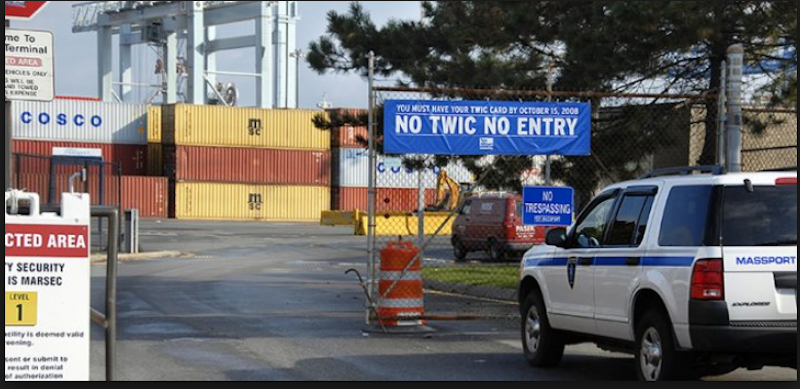Do you want to blow off steam about federal regulations in the maritime industry that seem unjust, ineffective, burdensome, costly or just plain dumb? Are you TWIC'ed off?
Now’s the time, because Uncle Sam is listening.
The Office of Management and Budget (OMB) is seeking public comments on “how the federal government may prudently manage regulatory costs imposed on the maritime sector.” The initiative is part of President Trump’s February executive order instructing federal agencies to review regulations they enforce and make recommendations on which rules should be repealed, replaced or modified.
The comment period has been open since May 23 and will close July 16.
The word is starting to get out to the industry, mainly through associations like the American Waterways Operators and the American Association of Port Authorities, which are encouraging their members to submit ideas and comments.
So far, 20 comments have been posted to the public docket, and they suggest regulations that should be eliminated as well those that should stay. There are several comments that recommend elimination of the Transportation Worker Identification Credential (TWIC) , while others urge Uncle Sam not to tamper with the Jones Act.
“Don’t change the Jones Act, maritime preference laws or the Passenger Vessel Services Act,” wrote Alan Pelletier, a retired chief engineer. “These laws are vital to our national security and strength of the U.S. merchant marine.”
Stephen Banet of Wepfer Marine, which operates harbor and fleeting services along the Lower Mississippi River, suggests modifications to the Marine Transportation Security Act (MTSA), most specifically requirements that towing companies that handle regulated commodities create and maintain Vessel Security Plans or Facility Security Plans if they handle certain dangerous cargoes.
“This requirement consumes a great amount of time, energy and financial resources. The law requires that our personnel receive training, conduct quarterly drills, annual exercises and be audited either internally or by third party concerns along with inspections by the U.S. Coast Guard. The administrative burden is tremendously unnecessary and adds no value.”
He adds: “In conversations with colleagues in this industry it is well known that very few take this seriously or with any sincerity. Even the representatives from the Coast Guard agree that this is a bad, poorly written law and was simply a knee-jerk reaction to the happenings of 9/11.”
In another comment to the docket, Banet expressed his frustration with the TWIC program, suggesting that it be "completely abolished.” He said that the program “has cost the transportation industry a tremendous amount of money and adds no value whatsoever.”
Other writers suggested harmonizing ballast water treatment systems to international standards, mandating that a certain percentage of crude oil and LNG exports be carried by U.S.-flag and manned ships, and providing more federal support for mariner training through the state and federal maritime academies.
Zakary Trede, who does not give his organization, notes that while the Maritime Administration has announced it will replace the aging training ship at SUNY Maritime in New York, it should also give attention to the needs of the Texas A&M Maritime Academy which hasn’t had an approved unlimited training vessel since the early 2000s. “Although they gave Texas A&M the old training ship from (the federal academy at) King’s Point, it is still a limited ton vessel and only houses 50 cadets as opposed to the 600 currently attending the school,” he said.
Do you have a comment to add? Post it at https://www.regulations.gov/document?D=OMB-2018-0002-0001




